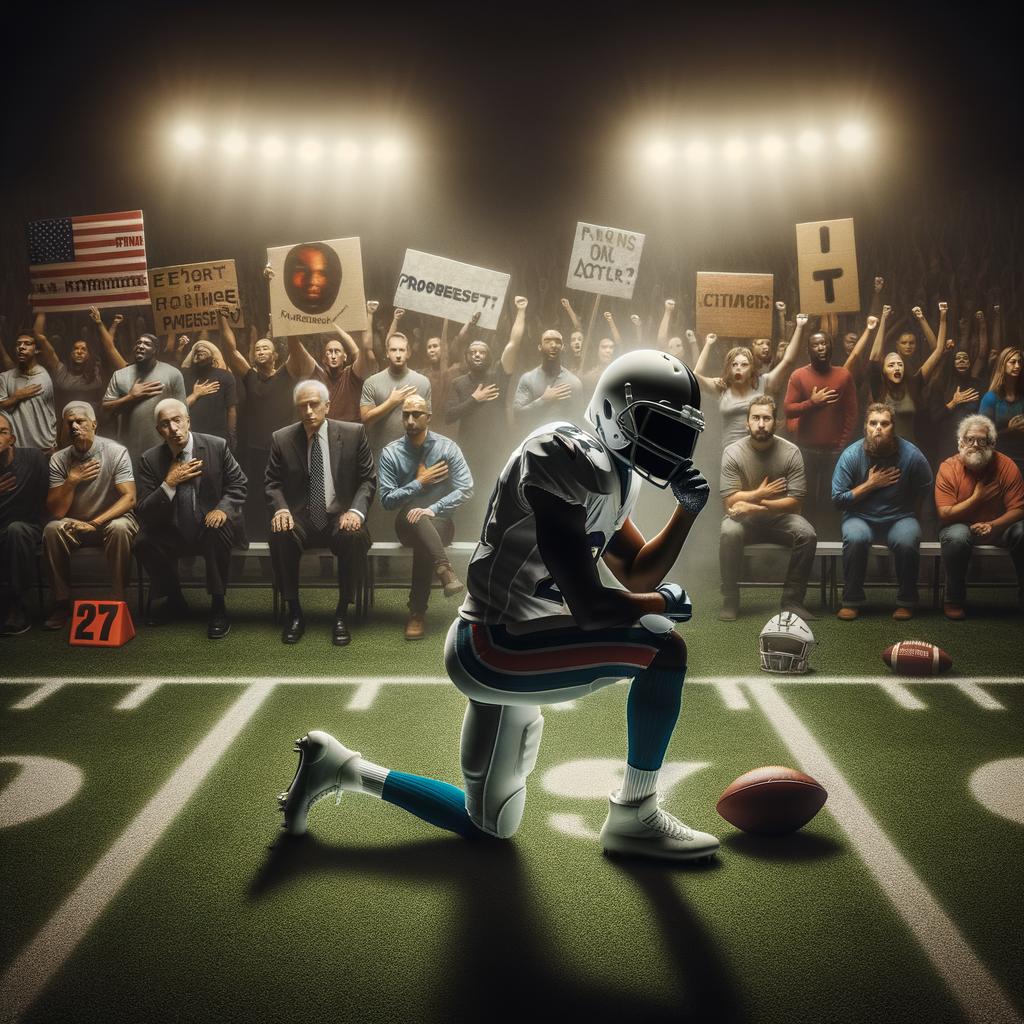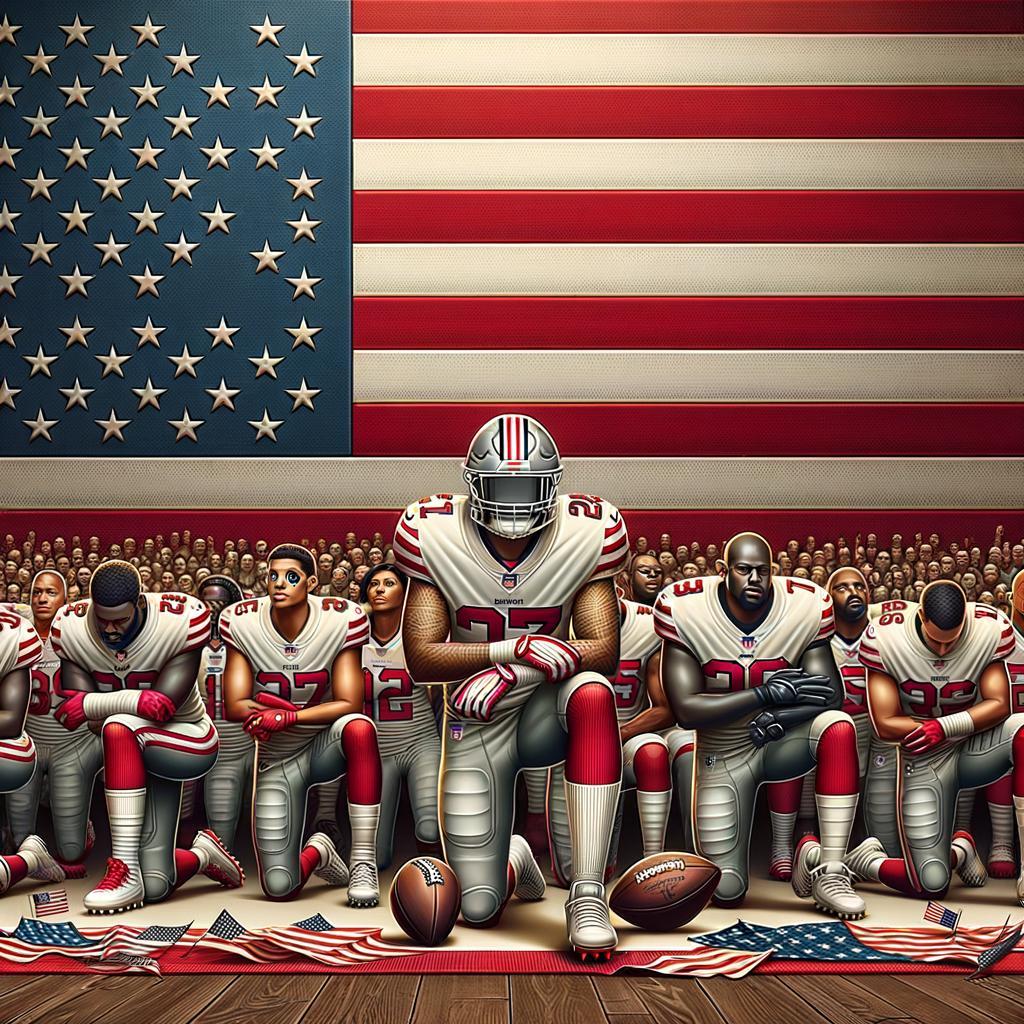In recent years, the National Football League (NFL) has transcended its role as mere entertainment, evolving into a powerful platform for social commentary and change. At the heart of this transformation are the player protests that began in 2016, igniting a nationwide conversation about social justice, racial inequality, and the responsibility of athletes as public figures. From kneeling during the national anthem to using helmets and jerseys as canvases for messages, these actions have not only challenged the norms of sports culture but have also sparked debates across American society regarding patriotism, freedom of speech, and the very fabric of democracy. This article seeks to examine the profound impact of these protests, exploring how they have reshaped public perceptions, influenced political dialogue, and prompted conversations about systemic injustices. By delving into both the criticisms and the support surrounding these movements, we aim to paint a comprehensive picture of the protests’ implications and their lasting effect on America’s social landscape. Join us as we explore the intersection of sports, activism, and the pursuit of equality in a nation grappling with its ideals.
The recent wave of protests by NFL players has opened up a vast landscape of social and political discourse, highlighting the complexities of race relations, civil rights, and the responsibilities of public figures in America. As players kneel during the national anthem, a traditional moment meant to honor the country, they evoke a visceral response from a divided audience. Key implications of these protests include:
- Shifting perceptions of patriotism: The act of kneeling has sparked debates on what it means to respect the flag and the values it represents.
- Amplifying social justice issues: These protests have brought significant attention to systemic injustices, prompting discussions that extend beyond the football field.
- Economic ramifications for the NFL: The league faces backlash from factions of its fanbase, raising questions about economic sustainability and corporate responses to athlete activism.
To navigate the contentious waters stirred by athlete activism, fostering constructive dialogue and community engagement is essential. Effective strategies may include:
- Creating forums for open discussion: Organizing community town halls allows fans, players, and local leaders to engage in meaningful conversations.
- Promoting collaborative initiatives: Partnering with social justice organizations can help bridge divides and highlight engagement in positive community development.
- Utilizing media responsibly: Engaging with media to present a balanced narrative encourages understanding and discourages further polarization.
| Aspect | Impact |
|---|---|
| Player Protests | Increase national debate on race and justice |
| Fan Reactions | Heightened division among supporters |
| League Response | Potential policy changes on social activism |
Concluding Remarks
the NFL player protests represent more than just a demonstration during the national anthem; they embody a powerful call for social justice and accountability. As we have examined, these actions have sparked essential conversations about racial inequality, police brutality, and the role of athletes in advocating for change. The impact of these protests has rippled beyond the football field, encouraging fans, businesses, and policymakers to engage in a dialogue that is desperately needed in our society.
While the debate surrounding these protests continues, it is crucial to recognize their significance in amplifying marginalized voices and challenging the status quo. As the nation grapples with these issues, we must consider how the courage of players to speak out has not only catalyzed a movement within sports but has also inspired a broader national discourse on race and justice.
Ultimately, the legacy of these efforts will be shaped not only by the outcomes of the protests themselves but also by our collective response as a society. Engaging in meaningful conversations, supporting equity-driven initiatives, and holding ourselves and our institutions accountable will determine whether this moment translates into lasting change.
As we reflect on the profound implications of these protests, let us remain committed to fostering an environment where dialogue leads to understanding, and where the fight for justice is a shared responsibility. The journey toward a more equitable America is ongoing, and the voices that took a stand on the NFL field have opened doors for us all to join in this critical conversation. Now, more than ever, it is our turn to act—together.

Leave a Reply